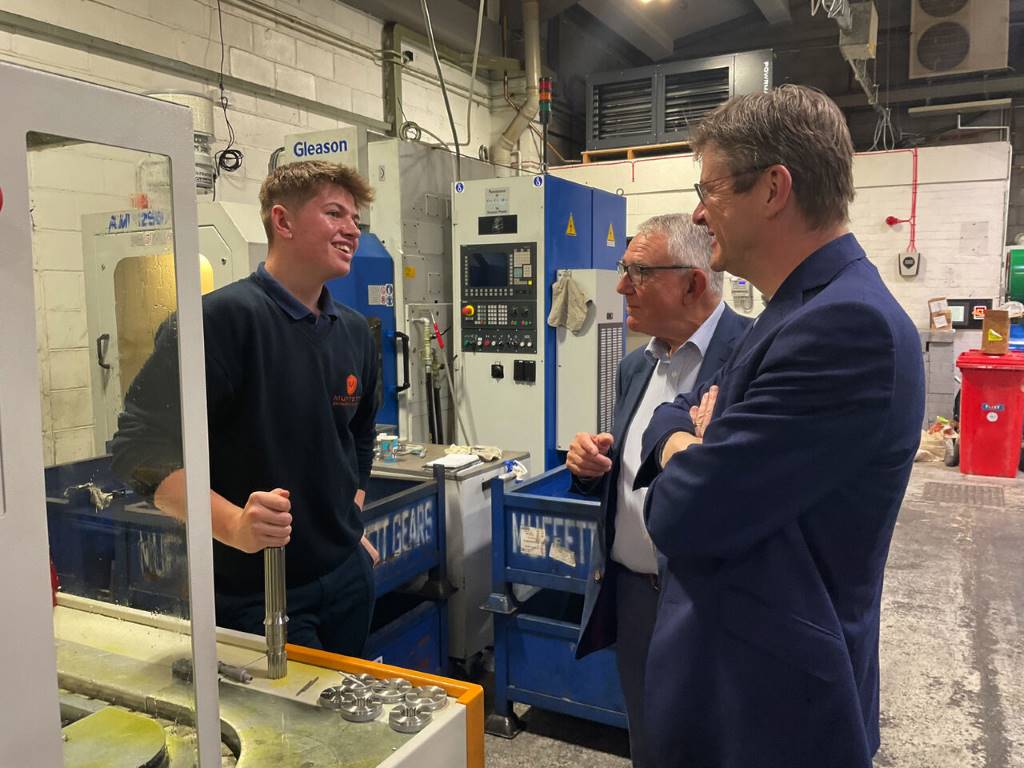Budget 2023: UK industry reacts to chancellor’s announcements

Following the chancellor’s latest budget announcements, the UK manufacturing industry has responded with its reactions.
Stephen Phipson, Chief Executive of Make UK, said: “Given the limited headroom the Chancellor had, his pursuit of continued stability and reassurance is understandable. Within this he was right to focus on significant measures to boost investment and the welcome support for childcare. Companies will be disappointed, however, that there is no extension of support for energy with the rapidly approaching cliff edge of the current scheme ending, while the planned changes to R&D tax credits remain and will be unwelcome for SMEs in particular as they are implemented in April.
“Looking forward, given the bigger picture at play and, in the face of the firepower that the US and EU are bringing to bear with their huge incentive programmes to bolster onshore manufacturing, the UK needs transformational reforms that look to the long term, with the aim of equipping businesses and individuals for the scale and pace of the challenge we are facing.”
“This can only be done through building on the Chancellors’ five key areas of growth with a radical, ambitious modern industrial strategy and policy agenda that has science, technology and innovation at its heart. Industry will welcome his reference to ‘Industrial Strategy’ and stands ready to work with and, support him, to reshape our economy and boost growth.”
On full expensing, James Brougham, senior economist said: “Industry will welcome this boost to investment which is key to unlocking improved productivity for both the sector and the wider economy. Nevertheless, investment intentions have been dwindling over the past year as businesses have been forced to take a shorter-term view with their capital in the face of an onslaught of costs, despite thee significantly more generous, super-deduction scheme.
“To see the Government’s ambitions of growing investment, the focus must now be placed on removing wider challenges so industry is afforded the privilege of taking a longer-term view to investment. While the implementation of this new policy for three years compared to the two of the super-deduction allows more time for considered investment planning, a longer or permanent implementation would better fit the longer investment cycles of the sector. Concerns also remain for those smaller businesses with less access to capital, as it is those companies who are more likely to lease or buy second-hand plant & machinery, of which both methods of capital investment are excluded from the announced scheme’s benefit.”
Commenting on R&D changes, Verity Davidge, director of policy, said: “While the Chancellor set out big and ambitious plans for AI and quantum, the focus on diffusion and adoption of digital adoption overall is lacking. R&D tax credit policy keeps chopping and changing and many businesses will struggle to keep up. Large swathes of small and medium sized manufacturers will find themselves out of pocket when the new changes come in in April this year and we were looking to the Chancellor to delay, or even better, reverse these changes to boost R&D across all of manufacturing.”
Commenting on energy security and costs, Brigitte Amoruso, energy and climate change adviser, said: “The Chancellor’s focus on energy security with the extension of Climate Change Agreements, and prioritising of nuclear and SMRs is welcome. However, this does little to tackle the real and immediate threat manufacturers face with rocketing energy bills. While the current energy support scheme has reduced bills overall, the incoming scheme is unlikely to be triggered, leaving many companies on a cliff edge at the end of the month. We now need to see further action from Government to turbo-charge industrial energy efficiency with competitive tax incentives and reliefs to invest in green technologies.”
On labour market changes, Jamie Cater, senior employment policy manager, said: “There is much which will begin to address the current labour challenge in manufacturing, but there remains much more to do. While manufacturers will benefit from improved skills training options for people who have become economically inactive, government support for upskilling and retraining remains piecemeal, and take-up of existing pathways is still low. It is important that government works with industry to make sure that workers of all ages can access the training they need, and that employers and employees alike have a clear understanding of what is available to them.
“Manufacturers will also welcome the Chancellor’s support for improving the accessibility and affordability of childcare. As they continue to make strides in becoming more inclusive employers, and seek to enable more parents, grandparents and others with caring responsibilities to come back to work, this additional support from government is a step in the right direction.”
Marco Forgione, director general of The Institute of Export & International Trade commented: “We are pleased to see the Chancellor announce policies which will further strengthen levelling up in the nations and regions, which we called for in our letter to him prior to the Spring Budget. These new powers for UK mayors and combined authorities in skills, energy and infrastructure will benefit businesses and exporters while helping to address regional inequalities.
“The 12 new investment zones will also accelerate much needed research and development in the UK’s ‘most budding industries’ and this is essential to ensure the UK remains competitive in trade in services. Over 50% of our members are in the manufacturing industry and they will be looking closely what opportunities these investment zones will mean for them. We also look forward to providing insights and feedback to the government, in the coming months, in relation to their announced package of measures intended to simplify customs import and export processes for traders.
“However, despite many positives in the Budget, we hoped to see more specific support for MSMEs. A targeted industrial strategy which brings together a clearly defined import and export strategy is essential to this and the recent formation of the Department for Business and Trade should be an opportune moment to make this happen. We will continue to make representations to government to make this a reality and to discuss the formation of a specific government taskforce which considers the needs of MSME exporters in particular.”
Phil Alston, commercial director of iconsys, a specialist in the integration of automation, control systems, robotics, and autonomous vehicles added: “The new full capital expense deduction is a welcome addition to soften the blow of losing the capital allowance super deduction that expires at the end of this month.
“Whilst not as generous as the existing scheme, this will allow UK manufacturing businesses to continue to invest in automating their processes and help with the push towards net zero.”
“For manufacturing businesses looking to expand in the next few years, these new ‘investment zones’ could allow for quicker business development with cleaner, more streamlined process lines and full vertical data integration thanks to the ongoing automation and robotics revolution.”
Milissa Chesters, Head of People & Culture, iconsys, added: “Any incentives to get skilled engineers and project managers back into the engineering sector are warmly welcomed by iconsys.
“We’ve seen the decline in highly skilled engineers in recent years throughout manufacturing, and, whilst we only hire the very highest calibre, a larger pool of talent to draw from can only be of benefit to all.
“Automation and robotics is often viewed as ‘replacing’ staff, but in our experience we find it frees up skilled labour to perform higher skilled tasks - those skill sets will remain invaluable.
“In addition, changes to the childcare system and free childcare for children over 9 months will hopefully encourage more engineers back into employment after having children. Here at iconsys we encourage diversity in our workforce, and this can only help.”
Beatrice Barleon, head of policy and public affairs at EngineeringUK, commented: “We welcome the Government’s ongoing commitment to make the UK a science and technology superpower and the ambitions of growing the economy, meeting our Net Zero targets, and unlocking the potential of every region. We also welcome the acknowledgement that to achieve this, businesses, including engineering and technology businesses, urgently need a larger skills and workforce base, now and in the future.”
“However, the measures on childcare as well as the focus on those over 50 will not, on their own, solve the wider skills and workforce shortages in the engineering and technology sector in the long-term. We urgently need greater investment in and focus on STEM education, STEM teachers, careers provision and vocational pathways for young people.”
“Our Fit for the Future Inquiry into engineering and technology apprenticeships will be reporting later this year and we hope to work closely with the Treasury to explore how they can support growth across the engineering profession.”
Make UK
www.makeuk.org
Institute of Export & International Trade
www.export.org.uk
iconsys
www.iconsys.co.uk
EngineeringUK
www.engineeringuk.com













